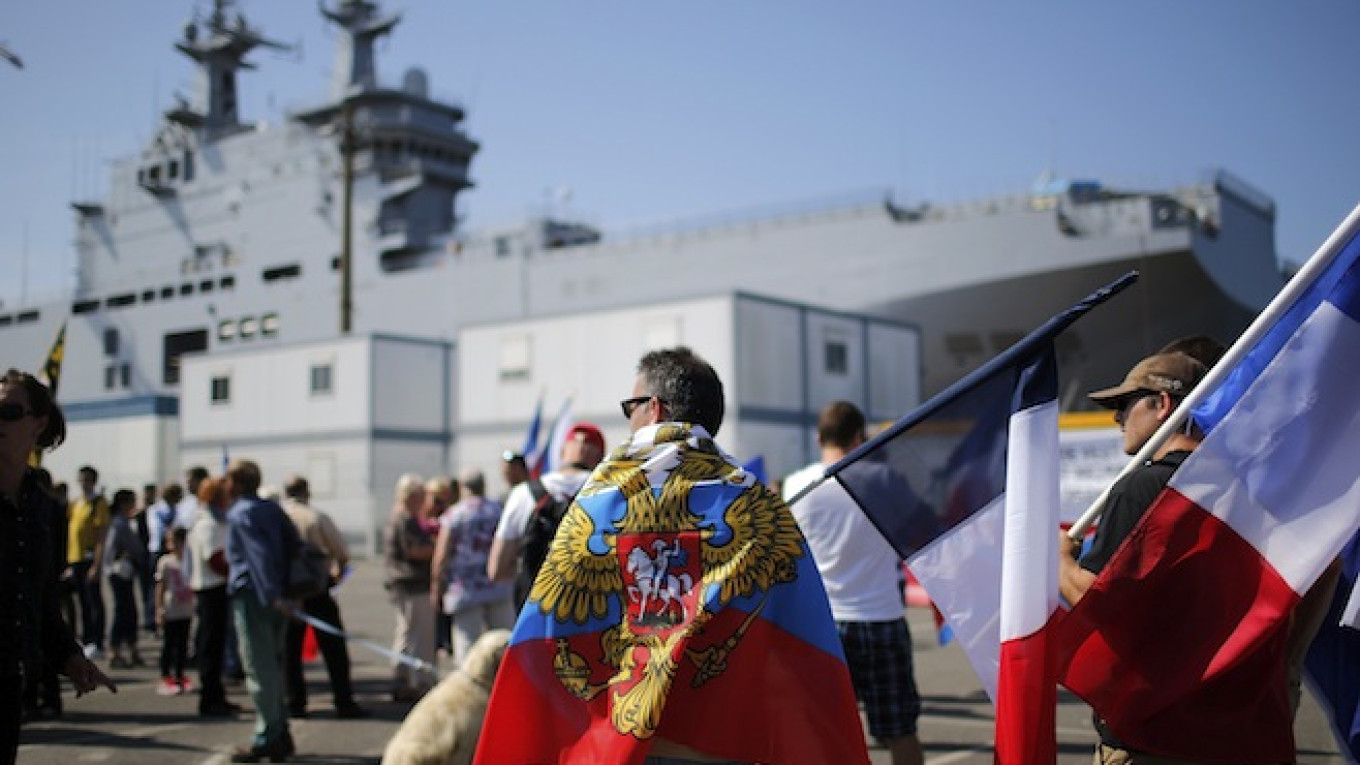The number of Russians who want their country to pursue a European course has shrunk manifold during President Vladimir Putin's years in power, dropping from a confident majority to a mere 16 percent of the population, a recent poll indicates.
The view that Russia should seek to join the European Union at some point in its future was shared by 65 percent of the country's population in late 1999, when Putin first appeared at the nation's helm as prime minister, but after a graduate slide, the number went into a tailspin about four years ago, and finally hit an all-time low of 16 percent last month, according to a recent report by the independent Levada Center pollster.
Russians' opinions of the EU also appear to have soured in recent months amid the crisis in Ukraine, which began over a dispute about the country's association with the EU, and have led to a harsh standoff between Moscow and the West.
The number of Russians who held positive views of the EU has shrunk to a mere 19 percent in the latest poll, compared with a high of around 75 percent a decade ago, while the number of those who viewed the EU negatively has soared to 68 percent, compared with 10 percent in late 2003, according to the Levada Center report.
Except for a brief period in 2008 — when Moscow drew much criticism from Europe and other Western governments for its war with Georgia — the number of Russians who viewed the EU positively during the previous decade had remained above 50 percent of the population, while the number of those who viewed it negatively had fluctuated between 10 percent and 30 percent, according to the report.
The protests in Ukraine broke out after the country's previous, Moscow-backed administration decided to back out of a planned association deal with the EU. The protests led to the ouster of the government, but also prompted Moscow's annexation of Crimea and the ongoing conflict in eastern Ukraine between government forces and pro-Russian separatists.
Moscow officials and state-run television have waged a harsh rhetorical onslaught against Ukrainian protesters and their European supporters, apparently succeeding in turning Russians against the EU. Levada Center conducted the poll on Sept. 19-22 among 1,600 people in 46 of Russia's regions, and had a margin of error of 3.4 percentage points.
Contact the author at newsreporter@imedia.ru
A Message from The Moscow Times:
Dear readers,
We are facing unprecedented challenges. Russia's Prosecutor General's Office has designated The Moscow Times as an "undesirable" organization, criminalizing our work and putting our staff at risk of prosecution. This follows our earlier unjust labeling as a "foreign agent."
These actions are direct attempts to silence independent journalism in Russia. The authorities claim our work "discredits the decisions of the Russian leadership." We see things differently: we strive to provide accurate, unbiased reporting on Russia.
We, the journalists of The Moscow Times, refuse to be silenced. But to continue our work, we need your help.
Your support, no matter how small, makes a world of difference. If you can, please support us monthly starting from just $2. It's quick to set up, and every contribution makes a significant impact.
By supporting The Moscow Times, you're defending open, independent journalism in the face of repression. Thank you for standing with us.
Remind me later.


